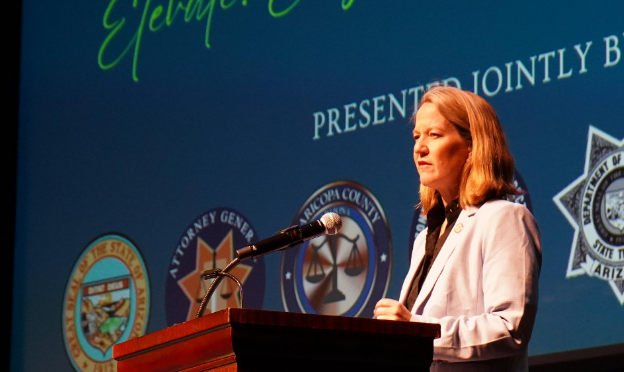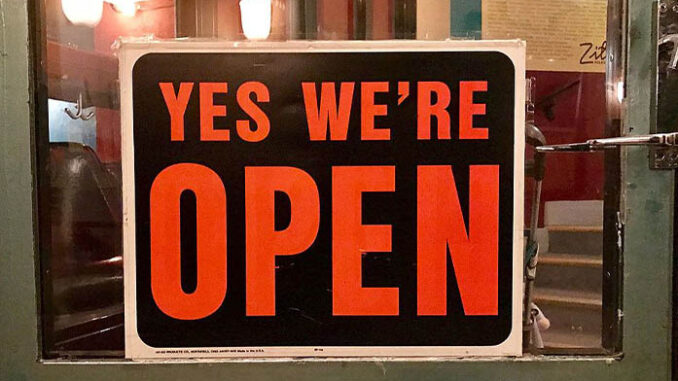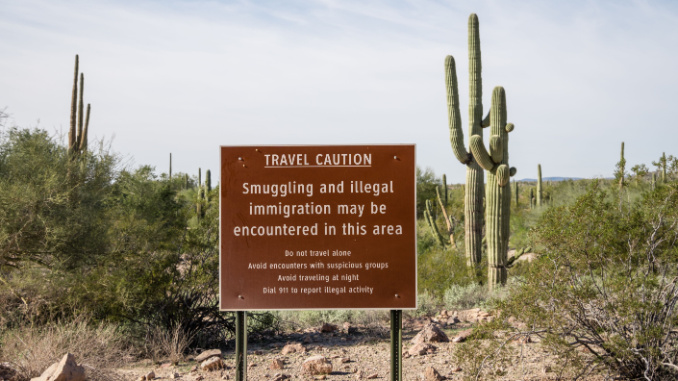
by Staff Reporter | Oct 16, 2025 | News
By Staff Reporter |
Attorney General Kris Mayes says recently elected congresswoman Adelita Grijalva must be sworn in, or else she will take legal action against House leadership.
Statewide certification occurred on Tuesday. After, Mayes sent a letter threatening House Speaker Mike Johnson with legal action should Grijalva not be sworn in promptly. Grijalva assumed the seventh congressional district seat vacated by her father, Raúl Grijalva, in a special election last month.
“Failing to seat Ms. Grijalva immediately or to otherwise provide a reasonable explanation as to when she will be seated will prompt legal action,” said Mayes in her demand letter.
Representative-elect Grijalva received nearly 70 percent of the 102,000 votes certified, a “substantial share” of which were mail-in ballots. There are about 440,000 registered voters in the district, which would mean Grijalva was elected by just 16 percent of all active registered voters in the district.
Even though Grijalva represents far less than a quarter of voters in her district — and her father was virtually absent from two whole sessions of Congress — Democrats insist on the relevance of immediate representation for the seventh congressional district.
In an accompanying press release, Mayes blamed the delay to swear in Grijalva on “political games.”
“It’s way past time for Mike Johnson to stop the political games and seat Adelita without delay,” said Mayes. “We are keeping every option open to us, including litigation, to hold him accountable and make sure that Adelita is able to begin her work as Arizona’s newest member of Congress.”
Grijalva has also been accused of political games with her demands to be sworn in prior to the certification of the special election, which would officiate the results.
The Democratic Women’s Caucus — and a few male Democratic electeds — marched the Capitol hallways chanting “Swear her in!” with matching political signs that read, “Every American Deserves Representation. Swear in Adelita Grijalva Now.”
Johnson was not in the Capitol during this display, as he was reportedly attending the ceremony to award the late Turning Point USA founder Charlie Kirk with the Presidential Medal of Freedom on what would have been his 32nd birthday. Kirk was assassinated by a progressive activist last month.
A Johnson aide told CNN that Grijalva is one bargaining measure to pressure Democrats to lift the ongoing government shutdown, which has lasted over two weeks now.
Grijalva insists there’s more to the story. The representative-elect claims Johnson’s delay doesn’t have to do with the shutdown but with her support for releasing the Epstein files. Grijalva’s signature would ensure their release.
Mayes addressed the Johnson aide remarks in her demand letter.
“Arizona’s right to a full delegation, and the right of the residents of CD 7 to representation from the person they recently voted for, are not up for debate and may not be delayed or used as leverage in negotiations about unrelated legislation,” said Mayes.
AZ Free News is your #1 source for Arizona news and politics. You can send us news tips using this link.

by Matthew Holloway | Oct 16, 2025 | News
By Matthew Holloway |
President Trump’s historic Gaza ceasefire deal, signed Monday with Palestinian leaders and Israel, has sparked rare bipartisan praise from Arizona’s elected officials.
Congressman Andy Biggs (R-AZ05) wrote from the gubernatorial campaign trail, “This incredible day is happening because of President Trump’s strength and determination to bring peace to the region.”
However, he has also raised the alarm regarding post-deal barbarism from Hamas, with reports of public executions in Gaza streets just hours after inking the treaty. “Hamas is carrying out barbaric executions… They must do so expeditiously or face consequences for violating the ceasefire,” he posted on X.
Kudos have poured in from Democrats as well, with Sen. Mark Kelly offering Trump a rare bipartisan praise. “I think he should get a lot of credit. I mean, this was his deal. He worked this out. He sent Steve Witkoff and Jared Kushner over to negotiate this, and it so far has gone well,” Kelly told CNN’s Dana Bash on “State of the Union.”
Kelly hailed the hostage returns and the flood of aid trucks that “should have been happening over the last two years.” Kelly, however, cautioned, “I am concerned that they may change their minds here.”
Kelly posted on X: “After two years, this is a real opening for peace that will release the hostages and get desperately needed aid to civilians in Gaza. There’s a lot more work to see this through, but I appreciate the work of President Trump, the administration, and our international partners to reach this point.”
Senator Ruben Gallego notably avoided lauding the Trump administration in his statement on Monday, merely calling the peace “profoundly overdue.” He wrote, “After two long years, the final Israeli hostages have returned home. This day is profoundly overdue, and my heart is with the families whose unwavering hope and perseverance made it possible. Their return marks an important step toward peace. I remain steadfast in the belief that the United States must continue its efforts to ensure humanitarian aid reaches Palestinians and that Gaza is rebuilt.”
Congressman Abe Hamadeh (R-AZ08), who has been instrumental in the administration’s Middle East diplomacy, wrote a lengthy statement, saying in part: “In a day some thought would never come, the remaining Israeli hostages have been freed and returned to their families.”
Hamadeh added, “It was a day 737 days in the making and one that wouldn’t have been possible without the bold leadership of President Trump and the hard diplomatic work of Secretary of State Marco Rubio, Steve Witkoff, Jared Kushner, and the entire Trump Administration.”
Hamadeh asked God for blessings for the returning hostages, their families and the families of those whose remains were returned adding, “It is my fervent hope that the bodies of those who haven’t been returned are located and returned soon.” He concluded: “Blessed are the peacemakers who fought so hard on behalf of these families amidst overwhelming odds and overwhelming uncertainty.”
Arizona Senate President Warren Petersen (R-LD14) offered very direct praise from the State House, naming the President simply “the peacemaker.” He wrote, “Peace in the Middle East. Thank you, @realDonaldTrump, the peacemaker.”
State Rep. Alma Hernandez (D-LD 10) provided a particularly raw and emotional take as well from the Democrat side of the aisle, posting about her openly sobbing over reunion videos only to wake in fresh grief for the families learning their loved ones wouldn’t return.
Though she didn’t directly credit the administration, she wrote, “While we are all overjoyed and celebrating the return of the 20 hostages, let’s not forget those families who anxiously waited for over two years to find out this morning that their loved one was not returning alive… I can’t imagine the feeling of great heartbreak & sorrow those families are feeling right now. They held on to every ounce of hope… my heart goes out to them, and I pray that they will overcome this tragedy.”
Notably, as of this report, no statements from Governor Katie Hobbs, Attorney General Kris Mayes, or Secretary of State Adrian Fontes praising the administration were publicly available, despite all three being vocal on the topic of the Hamas-Israel conflict.
Matthew Holloway is a senior reporter for AZ Free News. Follow him on X for his latest stories, or email tips to Matthew@azfreenews.com.

by Ethan Faverino | Oct 16, 2025 | Economy, News
By Ethan Faverino |
The National Federation of Independent Business (NFIB) Small Business Optimism Index dropped 2 points in September to a score of 98.8, marking the first decline in three months.
Despite remaining above the 52-year average of 98, the dip reflects growing concerns among small business owners grappling with inflationary pressures, supply chain disruptions, and persistent labor shortages. The Uncertainty Index climbed 7 points to 100, making it the fourth-highest reading in over 51 years.
NFIB Chief Economist Bill Dunkelberg said, “Optimism among small business owners decreased in September. While most owners evaluate their own business as currently healthy, they are having to manage rising inflationary pressures, slower sales expectations, and ongoing labor market challenges. Although uncertainty is high, small business owners remain resilient as they seek to better understand how policy changes will impact their operations.”
In Arizona, small business owners echoed with national concerns: “Unfortunately, Arizona small business owners are facing the same sort of challenges we see in the national survey,” NFIB State Director Chad Heinrich said. “The ongoing labor shortage and inflationary pressures are giving small business owners pause in this economy. They’re focused on meeting their customers’ needs and retaining their workforce.”
Key findings from the September survey include:
- Inflation and Supply Chains: Inflation emerged as a significant issue, with 14% of owners citing it as their top business problem, up 3 points from August. A net 24% raised selling prices, up 3 points, and a net 31% plan to increase prices in the next three months, up 5 points. Supply chain disruptions impacted 64% of owners, a 10-point jump from August.
- Labor Market Struggles: 32% of owners reported unfilled job openings, unchanged from August. Of the 58% that are hiring or trying to hire, 88% faced a shortage of qualified applicants. A net 16% plan to create jobs in the next three months (up 1 point) is the highest since January 2025. Labor quality is tied with taxes as the top concern, cited by 18% of owners.
- Inventory and Sales: A net negative 7% viewed current inventory as “too low,” down 7 points—the largest monthly decline in the survey’s history. A net negative 7% reported higher nominal sales over the past three months, up 2 points, but a net 8% expect higher real sales volumes (down 4 points).
- Earnings and Investments: Actual earnings improved, with a net negative 16% reporting profit trends, up 3 points, and the highest since December 2021. Among those with lower profits, 33% cited weaker sales and 17% pointed toward material costs. Capital outlays remained steady, with 56% of owners reporting expenditures, primarily on equipment and vehicles.
- Financing Challenges: A net 7% reported tougher loan conditions, up 4 points and the highest this year. The average rate on short-maturity loans rose 8.8%. Regular borrowing increased, with 26% of owners reporting loans, up 3 points.
Despite these challenges, 57% of owners rated their business health as “good,” up 3 points, while 11% said “excellent,” down 3 points.
Taxes and labor quality tied as the top concerns, each cited by 18% of owners, while poor sales (10%) and government regulations (6%) remained notable issues.
Ethan Faverino is a reporter for AZ Free News. You can send him news tips using this link.

by Staff Reporter | Oct 15, 2025 | News
By Staff Reporter |
In a departure from the “soft on crime” approach, Tucson Mayor Regina Romero announced she will allow law enforcement to address crime.
Romero called the city’s approach the “Safe City Initiative.” The mayor announced the initiative on Sunday following months of community outcry over the ever-worsening levels of homelessness and crime in the city.
Tucson Police Chief Chad Kasmar said felony arrests increased by 50 percent and misdemeanor arrests increased by 100 percent over the last five years. Kasmar told KGUN9 that fentanyl’s rise is largely to blame; per the chief, 80 percent of addicts on the streets will refuse treatment because they know there are no consequences for breaking the law.
“It’s the reality that they know, if they only get caught with a lower level of possession, that they’re likely to have those charges dismissed during initial appearance, and they think, well, I’ll just be out. I’ll just be out in six or eight hours,” said Kasmar. “It’s not a big deal [to them].”
One Tucson native since 1999 described it this way in a Reddit post last November:
“The nightly shootings, open drug use and dealing, street prostitution, and gang activity is unlike anything I’ve seen here,” said the user. “It used to be the case that there were a half dozen bad intersections. Now it seems like every intersection is bad. Half of the bus stops have people slumped over or doing drugs. It feels like Gotham in a Batman movie.”
When a Tucson resident pointed out the Tucson Police Department’s reported crimes data site shows a slight decline in recent years, another native pointed out that Tucson residents don’t see the point in reporting the crimes anymore.
“Have you tried to report a crime lately? No officer shows up except for certain felony crimes. You have to make an online report that may as well be routed to some computer’s trash bin,” said the native. “Crime is ‘declining’ because people no longer see the point in reporting it, much like the declining unemployment rate that resulted because people simply stopped looking for work. An opinion column isn’t necessarily the best unbiased source for this info.”
The council may also pass an ordinance making drug possession a misdemeanor in order to work around the unwillingness of the Superior Court to prosecute drug offenses, even though those are felony offenses. With such an ordinance, the city could prosecute drug cases in the Municipal Court.
“Everyone deserves to be safe — in your neighborhood, at work, and in our public spaces,” said Romero. “We hear your current concerns about safety in our community loud and clear, and we share them. That is why we are launching the Safe City Initiative.”
As a precursor to the initiative, Romero defended the many social services aimed at the homeless population including the “low barrier” shelters, Violence Interruption Vitalization Action, Community Safety Health and Wellness, and Multi-Disciplinary Outreach Teams. And yet, Romero said these many services don’t stymie the major source of crimes: the homeless individuals with mental illnesses and/or drug addiction.
Romero said the city would continue investment in those programs. Additional investing will come from the opioid settlement funds to establish a Sobering Alternative Facility for Recovery Center, said Romero.
The Safe City Initiative will create a task force under the city manager, Tim Thomure, to help shape ordinances and policies that combine law enforcement action and drug addiction treatment. It will also increase police presence on public transit and in other high-crime areas, and social service outreach presence in areas with high levels of homelessness.
The mayor alluded to seeking greater state and regional funding and establishing more partnerships for treatments of mental and behavioral illness, and substance abuse.
The initiative also promises to expand the sessions offered by Community Court, which provides diversion programs for criminals dealing with mental illness and/or drug addictions.
Last week, the Tucson Police Department deployed officers to clear out a major homeless encampment.
Romero, first elected in 2019 and reelected in 2023, is coming up on the last leg of her second term, which ends in December 2027. The mayor may serve three consecutive four-year terms before being termed out.
AZ Free News is your #1 source for Arizona news and politics. You can send us news tips using this link.

by Jonathan Eberle | Oct 15, 2025 | News
By Jonathan Eberle |
Arizona Senate President Warren Petersen hailed a “victory for Arizona” on Monday after Maricopa County Superior Court Judge Michael Valenzuela dismissed all challenges to the Secure the Border Act — a voter-approved initiative known as Proposition 314.
The ruling, issued October 10 and electronically filed October 13, upheld the will of voters who passed the measure in November 2024. In a statement on X , Petersen said the decision upheld “the will of voters who passed Prop 314 to protect our communities from illegal crossings and fentanyl,” calling border security “non-negotiable.”
“President Donald Trump truly delivered the most secure border in U.S. history,” Petersen wrote. “If our nation ever sees a repeat of lawlessness from an administration like we witnessed with Biden-Harris, Arizona will be ready to uphold the rule of law.”
The lawsuit, Living United for Change in Arizona et al. v. State of Arizona, challenged several provisions of Proposition 314, arguing the law violated Arizona’s constitution. Plaintiffs included Living United for Change in Arizona (LUCHA), the Arizona Center for Empowerment, and two individual plaintiffs.
According to court documents, the Secure the Border Act — approved by voters and enacted in November 2024 — created new state laws addressing immigration enforcement and public benefits eligibility.
Judge Valenzuela’s 10-page ruling rejected all three counts brought by the plaintiffs, determining that counts 1 and 2 were not “ripe” for review, as the challenged provisions are not currently enforceable; plaintiffs lacked standing to bring certain claims, particularly regarding separation of powers and legislative delegation arguments; and the SAVE Provision did not violate Arizona’s Revenue Source Rule, because participation in the federal verification program does not impose costs on state or local agencies.
The court concluded that the plaintiffs’ complaint “fails to state a claim on which relief can be granted” and dismissed it with prejudice, making the decision final under Arizona civil procedure rules.
The ruling allows Proposition 314 to stand as enacted by voters, although parts of the law will remain unenforceable until triggered by developments in Texas or another state with similar legislation. The decision represents a significant victory for Arizona lawmakers who championed the measure, including Petersen and House Speaker Steve Montenegro, both of whom intervened in defense of the law.
Supporters say the ruling reinforces Arizona’s right to protect its borders and uphold voter-approved laws. For now, however, the court’s dismissal marks a legal and political win for backers of Proposition 314 — and for state leaders pushing for stricter border enforcement at the state level.
Jonathan Eberle is a reporter for AZ Free News. You can send him news tips using this link.

by Ethan Faverino | Oct 15, 2025 | News
By Ethan Faverino |
Michael Calles, a fourth-generation Arizonan, U.S. Navy and U.S. Army Veteran, and retired Phoenix Police Officer with 25 years of experience, has officially announced his candidacy for Glendale City Council in the Barrel District.
Running against incumbent Councilmember Bart Turner, Calles aims to restore transparency, accountability, and ethical governance to City Hall while addressing the growing concerns of Barrel District residents.
Calles, a political newcomer, brings a lifetime of public service to his campaign with a platform centered on strengthening public safety, investing in families and youth, revitalizing neighborhoods, and advocating for lower taxes, lower utilities, and robust economic investment in the Barrel District.
His announcement comes at a pivotal moment, as Barrel District citizens express frustration with what they describe as Councilmember Turner’s lack of responsiveness and transparency.
In a press release announcing the launch of his campaign, Calles wrote, “Glendale residents deserve safe neighborhoods, fiscal responsibility, and a City Council that works for them, not one that wastes taxpayer dollars. I’m running to restore trust, strengthen public safety, and deliver real results for families in the Barrel District.”
The Calles campaign is gaining momentum as residents rally for change in the Barrel District. His commitment to transparent governance and fiscal responsibility appears to resonate with voters seeking a City Council that reflects their values and priorities.
“I’m tired of seeing Glendale residents ignored while political insiders look out for themselves,” said Calles. “I believe city leaders should listen, respond, and lead with integrity — values I have lived every day through decades of service in law enforcement, the military, and as a mentor to local youth. Now, I am ready to bring that same honesty, discipline, and responsiveness to City Hall.”
Ethan Faverino is a reporter for AZ Free News. You can send him news tips using this link.






